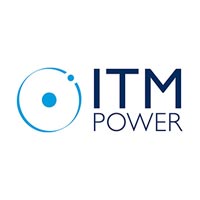ITM Power plc (LON:ITM), the energy storage and clean fuel company, is pleased to note the announcement today from Shell concerning a joint project to install a 10MW electrolyser to produce hydrogen at the Wesseling refinery site within the Rheinland Refinery Complex in Germany.
ITM Power CEO, Dr Graham Cooley, said: “Decarbonising hydrogen production in the chemical and refining industries worldwide is potentially a very large market. This pioneering project with Shell aims to demonstrate what can be achieved using our industrial scale electrolysers which can also use low cost renewable energy and help to balance electricity grids.”
The Company currently has £18.0m of projects under contract and £19.9m of contracts in the final stages of negotiation, totalling £37.9m. The Rheinland Refinery project is already included in these pipeline numbers.
The full text of Shell’s announcement is set out below.
SHELL PLANS PROJECT WITH ITM POWER FOR BULK HYDROGEN PRODUCTION THROUGH ELECTROLYSIS
Shell, together with ITM Power, plans a project to install a large scale electrolyser to produce hydrogen at the Wesseling refinery site within the Rheinland Refinery Complex. With a capacity of ten megawatts, this would be the largest unit of its kind in Germany and the world’s largest PEM (Polymer Electrolyte Membrane) electrolyser. This electrolyser technology is also suitable to improve the stability of the electricity grid with a growing share of intermittent renewable energy sources, such as from solar and wind.
Shell through Shell Deutschland Oil GmbH and Shell Energy Europe Ltd with consortium partners ITM Power PLC, SINTEF, thinkstep and Element Energy have been invited to the preparation of a grant agreement by the European Fuel Cells and Hydrogen 2 Joint Undertaking (FCH 2 JU), following a competitive call for proposals.
Today, the refinery uses approximately 180,000 tons of hydrogen per year in their various plants. The hydrogen is currently produced as a byproduct of the refining process or through natural gas reforming, while electrolysis uses electricity to split water into the base components of hydrogen and oxygen.
The project aims to enable the construction and operation of a large scale10 MW electrolyser that can produce high quality hydrogen and CO2 free hydrogen while demonstrating technology and cost improvements through upscaling and new business applications. Electrolysis using low-cost renewable electricity could be a key technology for a potential CO2 free hydrogen production in the Shell Rheinland Refinery.
“The envisaged hydrogen electrolysis would be a step into the future – opening the door to many new development options for the refinery,” said Dr. Thomas Zengerly, the General Manager for the Shell Rheinland Refinery. The hydrogen produced could be integrated into the refinery processes. The location will also allow the refinery to later expand its facilities to supply hydrogen to potential new customers outside the refinery. “This project would allow us to test new technologies in the refinery context”, Zengerly said.
“Hydrogen is a promising technology, even beyond direct use as a cleaner fuel for transport. In the future, it is also expected to play a key role in integrating energy storage and power grid balancing, thus enabling a reliable and growing share of renewables in the energy system,” said Brian Davis, Vice President of Integrated Energy Solutions at Shell.
Notes to the Editor:
• In transport, hydrogen is one of the fuels that can reduce emissions and improve air quality at the same time. Shell is taking part in various initiatives to encourage the adoption of hydrogen as a transport fuel. In Germany, Shell is working with the government and industry partners in a crosssector joint venture, H2 Mobility Germany, to support the development of a nationwide expansion of hydrogen refueling stations. Outside Germany, Shell already has hydrogen stations in the UK and California.
• About FCH 2 JU: The Fuel Cells and Hydrogen Joint Undertaking is a unique public private partnership supporting research, technological development and demonstration activities in fuel cell and hydrogen energy technologies in Europe. Its aim is to accelerate the market introduction of these technologies, realising their potential as an instrument in achieving a carbon-lean energy system. The three members of the FCH 2 JU are the European Commission, fuel cell and hydrogen industries represented by the Industry Grouping Hydrogen Europe and the research community represented by the Research Grouping N.ERGHY.

